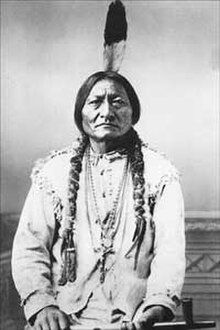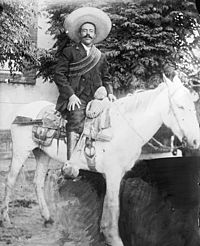
July 20 is the 201st day of the year (202nd in leap years) in the Gregorian calendar. There are 164 days remaining until the end of the year.
Holidays
- Christian feast day:
- Apollinaris of Ravenna
- Aurelius
- Elijah
- Elizabeth Cady Stanton, Amelia Bloomer, Sojourner Truth, and Harriet Ross Tubman (Episcopal Church (USA))
- John Baptist Yi (one of The Korean Martyrs)
- Margaret the Virgin
- Thorlac (relic translation)
- Wilgefortis (cult suppressed)
- July 20 (Eastern Orthodox liturgics)
- Día del Amigo (Argentina)
- Engineer’s Day (Costa Rica)
- Independence Day (Colombia), celebrates the independence declaration of Colombia from Spain in 1810.
- Lempira’s Day (Honduras)
- Tree Planting Day (Central African Republic)
History

In 70, Siege of Jerusalem – Titus, son of emperor Vespasian, storms the Fortress of Antonia north of the Temple Mount. The Roman army is drawn into street fights with the Zealots.
In 792, Kardam of Bulgaria defeats Byzantine Emperor Constantine VI at the Battle of Marcellae.
In 911, Rollo lays siege to Chartres.
In 1189, Richard I of England officially invested as Duke of Normandy.
In 1225, Treaty of San Germano is signed at San Germano between Holy Roman Emperor Frederick II and Pope Gregory IX. A Dominican named Guala is responsible for the negotiations.
In 1304, Wars of Scottish Independence: Fall of Stirling Castle – King Edward I of England takes the stronghold using the War Wolf.
In 1398, The Battle of Kellistown was fought on this day between the forces of the English led by Roger Mortimer, 4th Earl of March against the O’Byrnes and O’Tooles under the command of Art Óg mac Murchadha Caomhánach, the most powerful Chieftain in Leinster.
In 1402, Ottoman-Timurid Wars: Battle of Ankara – Timur, ruler of Timurid Empire, defeats forces of the Ottoman Empire sultan Bayezid I.
In 1592, The Japanese capture the Korean capital Pyongyang, causing King Seonjo to request the assistance of Ming Dynasty Chinese forces, who recapture the city a year later.
In 1628, Today is the anniversary of a small but important event in the history of America…the first occasion on which the ballot was used in the colonies that would become the United States. John Wilson was elected the pastor of Salem, Massachusetts, by ballot.

In 1629, The Englishman Sir David Kirke seizes power in Quebec.
In 1654, Anglo-Portuguese treaty, Portugal comes under English control.
In 1714, The English Riot Act, which prohibited assemblages of more than 12 people, took effect. If more than 12 people assembled, they were ‘read the Riot Act’ which called upon them to depart.
In 1738, Canadian explorer Pierre Gaultier de Varennes et de La Vérendrye reaches the western shore of Lake Michigan.
In 1799, Tekle Giyorgis I begins his first of five reigns as Emperor of Ethiopia.
In 1807, Nicéphore Niépce is awarded a patent by Napoleon for the Pyréolophore, the world’s first internal combustion engine, after it successfully powered a boat upstream on the river Saône in France.
In 1810, Citizens of Bogotá, New Granada declare independence from Spain.
In 1861, The Congress of the Confederate States began holding sessions in Richmond, Virginia.
In 1864, American Civil War: Battle of Peachtree Creek – Near Atlanta, Georgia, Confederate forces led by General John Bell Hood, who replaced Johnston, unsuccessfully attack Union troops under General William T. Sherman.
In 1864, At Atlanta, Sherman’s forces battle the Rebels now under the command of Gen. John B. Hood, .
In 1866, Austro-Prussian War: Battle of Lissa – The Austrian Navy , led by Admiral Wilhelm von Tegetthoff, defeats the Italian Navy near the island of Vis in the Adriatic Sea.
In 1871, British Columbia joins the confederation of Canada.
In 1877, A mob in Baltimore attacked soldiers and were fired upon. Baltimore was a rowdy city in the late 1800s…partly because Maryland had been divided by pro-Northern and pro-Southern sympathies in the Civil War.
In 1878, The telephone is introduced in Hawaii.

In 1881, Sioux Indian leader Sitting Bull, a fugitive since the Battle of the Little Big Horn, surrendered to federal troops.
In 1885, The Football Association legalizes professionalism in association football under pressure from the British Football Association.
In 1903, The Ford Motor Company ships its first car.
In 1911, Generals Henry Wilson/Auguste Dubail develop a plan for British Expeditionary army in case of war with Germany.
In 1912, Baltimore’s Fort McHenry was officially abandoned as a working military base so that it could be turned into a historic monument.
In 1917, World War I: The Corfu Declaration, which leads to the creation of the post-war Kingdom of Yugoslavia, is signed by the Yugoslav Committee and Kingdom of Serbia.
In 1922, The League of Nations awards mandates of Togoland to France and Tanganyika to the United Kingdom.
In 1923, Pancho Villa, Mexican general (b. 1878) was assassinated. José Doroteo Arango Arámbula (5 June 1878 – 20 July 1923) – better known by his pseudonym Francisco Villa or his nickname Pancho Villa – was one of the most prominent Mexican Revolutionary generals. As commander of the División del Norte (Division of the North), he was the veritable caudillo of the northern Mexican state of Chihuahua, which, given its size, mineral wealth, and proximity to the United States of America, provided him with extensive resources. Villa was also provisional Governor of Chihuahua in 1913 and 1914. Although he was prevented from being accepted into the “panteón” of national heroes until some 20 years after his death, today his memory is honored by Mexicans. In addition, numerous streets and neighborhoods in Mexico are named in his honor. Villa and his supporters seized hacienda land for distribution to peasants and soldiers. He robbed and commandeered trains and, like the other revolutionary generals, printed fiat money to pay for his cause. Villa’s men and supporters became known as Villistas during the revolution from 1910 to roughly 1920.
In 1932, In Washington, D.C., police fire tear gas on World War I veterans, part of the Bonus Expeditionary Force, who attempt to march to the White House.
In 1934, Labor unrest in the U.S.: Police in Minneapolis fire upon striking truck drivers, during the Minneapolis Teamsters Strike of 1934, killing two and wounding sixty-seven.
In 1934, 1934 West Coast waterfront strike: In Seattle, Washington, police fire tear gas on and club 2,000 striking longshoremen. The governor of Oregon calls out the National Guard to break a strike on the Portland docks.
In 1935, Switzerland: A Royal Dutch Airlines plane en route from Milan to Frankfurt crashes into a Swiss mountain, killing thirteen.
In 1936, The Montreux Convention is signed in Switzerland, authorizing Turkey to fortify the Dardanelles and Bosphorus but guaranteeing free passage to ships of all nations in peacetime.
In 1938, The United States Department of Justice files suit in New York, New York against the motion picture industry charging violations of the Sherman Antitrust Act in regards to the studio system. The case would eventually result in a break-up of the industry in 1948.
In 1940, Denmark leaves the League of Nations.
In 1940, California opens its first freeway, the Arroyo Seco Parkway.
In 1941, Soviet leader Joseph Stalin consolidates the Commissariats of Home Affairs and National Security to form the NKVD and names Lavrenti Beria its chief.

In 1942, Legion of Merit Medal authorized by congress.
In 1944, World War II: Adolf Hitler survives an assassination attempt led by German Army Colonel Claus von Stauffenberg. A bomb was placed under Adolph Hitler’s conference table by a top officer of the Wehrmacht in an attempt to overthrow the government. An oak support shielded Hitler, who survived. The failure of the assassination and the military coup d’état which was planned to follow led to the arrest of at least 7,000 people by the Gestapo, of whom 4,980 were executed.
In 1944, President Franklin D. Roosevelt was nominated for an unprecedented fourth term of office at the Democratic convention in Chicago.
In 1949, Israel and Syria sign a truce to end their nineteen-month war.
In 1950, Cold War: In Philadelphia, Pennsylvania, Harry Gold pleads guilty to spying for the Soviet Union by passing secrets from atomic scientist Klaus Fuchs.
In 1951, King Abdullah I of Jordan is assassinated by a Palestinian while attending Friday prayers in Jerusalem.
In 1954, Germany: Otto John, head of West Germany‘s secret service, defects to East Germany.
In 1960, Ceylon (now Sri Lanka) elects Sirimavo Bandaranaike Prime Minister, the world’s first elected female head of government.
In 1960, The Polaris missile is successfully launched from a submarine, the USS George Washington, for the first time.
In 1961, French military forces break the Tunisian siege of Bizerte.
In 1964, Vietnam War: Viet Cong forces attack the capital of Dinh Tuong Province, Cai Be, killing 11 South Vietnamese military personnel and 40 civilians (30 of which are children).
In 1968, The first International Special Olympics Summer Games are held at Soldier Field in Chicago, Ill, with about 1,000 athletes with intellectual disabilities.
In 1969, Apollo program: Apollo 11‘s crew successfully makes the first landing on the Moon in the Sea of Tranquility. Americans Neil Armstrong and Buzz Aldrin became the first humans to walk on the Moon later that day (Eastern Time Zone) after their lunar module separated from the command module and landed on the lunar surface at 09:18 GMT/4:18 EDT on the Sea of Tranquility. Michael Collins orbited above. Armstrong stepped on the lunar surface at 10:56 ET and proclaimed “That’s one small step for man, one giant leap for mankind.” Nearly 700 million earthlings tune in. I remember watching this in Rayado, NM.
In 1969, A cease fire is announced between Honduras and El Salvador, six days after the beginning of the “Football War“.
In 1970, The first baby is born on Alcatraz Island.
In 1974, Turkish occupation of Cyprus: Forces from Turkey invade Cyprus after a coup d’etat, organised by the dictator of Greece, against president Makarios.
In 1976, The American Viking 1 lander successfully lands on Mars.
In 1977, The Central Intelligence Agency releases documents under the Freedom of Information Act revealing it had engaged in mind control experiments.
In 1982, Hyde Park and Regents Park bombings: The Provisional IRA detonates two bombs in Hyde Park and Regents Park in central London, killing eight soldiers, wounding forty-seven people, and leading to the deaths of seven horses.
In 1983, The U.S. House of Representatives censured two members, Illinois Republican Daniel Crane and Massachusetts Democrat Gerry Studds, both of whom admitted having had sexual relations with teen-age congressional pages.
In 1985, The government of Aruba passes legislation to secede from the Netherlands Antilles.
In 1985, President Reagan, recovering from cancer surgery, checked out of Bethesda Naval Hospital and returned to the White House.
In 1988, Iranian leader Ayatollah Khomeini accepted a truce with Iraq, even though he said the decision was like drinking poison.
In 1988, Massachusetts Governor Michael Dukakis received the Democratic presidential nomination at the party’s convention in Atlanta.
In 1989, Burma‘s ruling junta puts opposition leader Daw Aung San Suu Kyi under house arrest.
In 1989, President Bush called for a long-range space program to build an orbiting space station, establish a base on the moon and send a manned mission to the planet Mars.
In 1990, Supreme Court Justice William J. Brennan, one of the court’s most liberal voices, announced he was planning to retire from the nation’s highest court after 36 years.
In 1991, Russian President Boris N. Yeltsin banned political activity in government offices and republic-run businesses, effectively curtailing the influence of the Communist Party.
In 1992, Václav Havel resigns as president of Czechoslovakia.
In 1993, White House deputy counsel Vincent Foster Junior was found shot to death in a park near Washington DC, a suicide.
In 1993, A day after firing William Sessions as FBI director, President Clinton named federal judge Louis Freeh to replace him.
In 1993, The Senate Judiciary Committee opened hearings into the Supreme Court nomination of Judge Ruth Bader Ginsburg. She would eventually be confirmed.

In 1993, Vincent Walker “Vince” Foster Jr. was found dead in Fort Marcy Park, a federal park in Virginia. An autopsy determined that he was shot in the mouth and no other wounds were found on his body. He was a Deputy White House Counsel during the first half-year of President Bill Clinton‘s administration. Prior to that, he was a partner at Rose Law Firm in Little Rock, Arkansas, where he was a colleague and friend of Hillary Rodham Clinton and where, as The Washington Post later wrote, he rose to “the pinnacle of the Arkansas legal establishment.”
In 1994, O.J. Simpson offered a $500,000 reward for the capture of his wife’s “real killer.” Simpson’s legal advisors activated a toll-free number for leads.
In 1995, Leaders of the University of California voted to drop affirmative action policies on admissions and hiring.
In 1997, The fully restored USS Constitution (aka Old Ironsides) celebrates its 200th birthday by setting sail for the first time in 116 years.
In 1999, The Chinese Communist Party begins a persecution campaign against Falun Gong, arresting thousands nationwide.

In 2005, James Doohan, Canadian-American actor (b. 1920) dies at his home in Redmond, Washington due to complications of pulmonary fibrosis, which was believed to be from exposure to noxious substances during WWII. He was a Canadian character actor and voice actor best known for his role as Montgomery “Scotty” Scott in the television and film series Star Trek. Doohan’s characterization of the Scottish Chief Engineer of the Starship Enterprise was one of the most recognizable elements in the Star Trek franchise, for which he also made several contributions behind the scenes; for example, he contributed to developing the Klingon and Vulcanlanguages. Many of the characterizations, mannerisms, and expressions that he established for Scotty and other Star Trekcharacters have become entrenched in popular culture.

In 2007, Tammy Faye Messner, American talk show host, singer, and author (b. 1942) dies after 11 years with cancer. She was an American Christian singer, evangelist, entrepreneur, author, talk show host, and television personality. She was married from 1961 to 1992 to televangelist, and later convicted felon, Jim Bakker. She co-hosted with him on The PTL Club (1976–1987). She was a participant in the 2004 season of the reality show The Surreal Life.
In 2012, James Holmes opened fire at a movie theater in Aurora, Colorado, killing 12 and injuring 70 others.
In 2012, United Nations Security Council Resolution 2059 is adopted.
In 2013, Seventeen government soldiers are killed in an attack by FARC revolutionaries in the Colombian department of Arauca.
In 2015, A huge explosion in the mostly Kurdish border town of Suruç, Turkey, targeting The Socialist Youth Associations Federation, kills at least 31 people and injures over 100.
In 2015, The United States and Cuba resume full diplomatic relations after five decades.
In 2017, O. J. Simpson is granted parole to be released from prison after serving nine years of a 33-year sentence after being convicted of armed robbery in Las Vegas.



